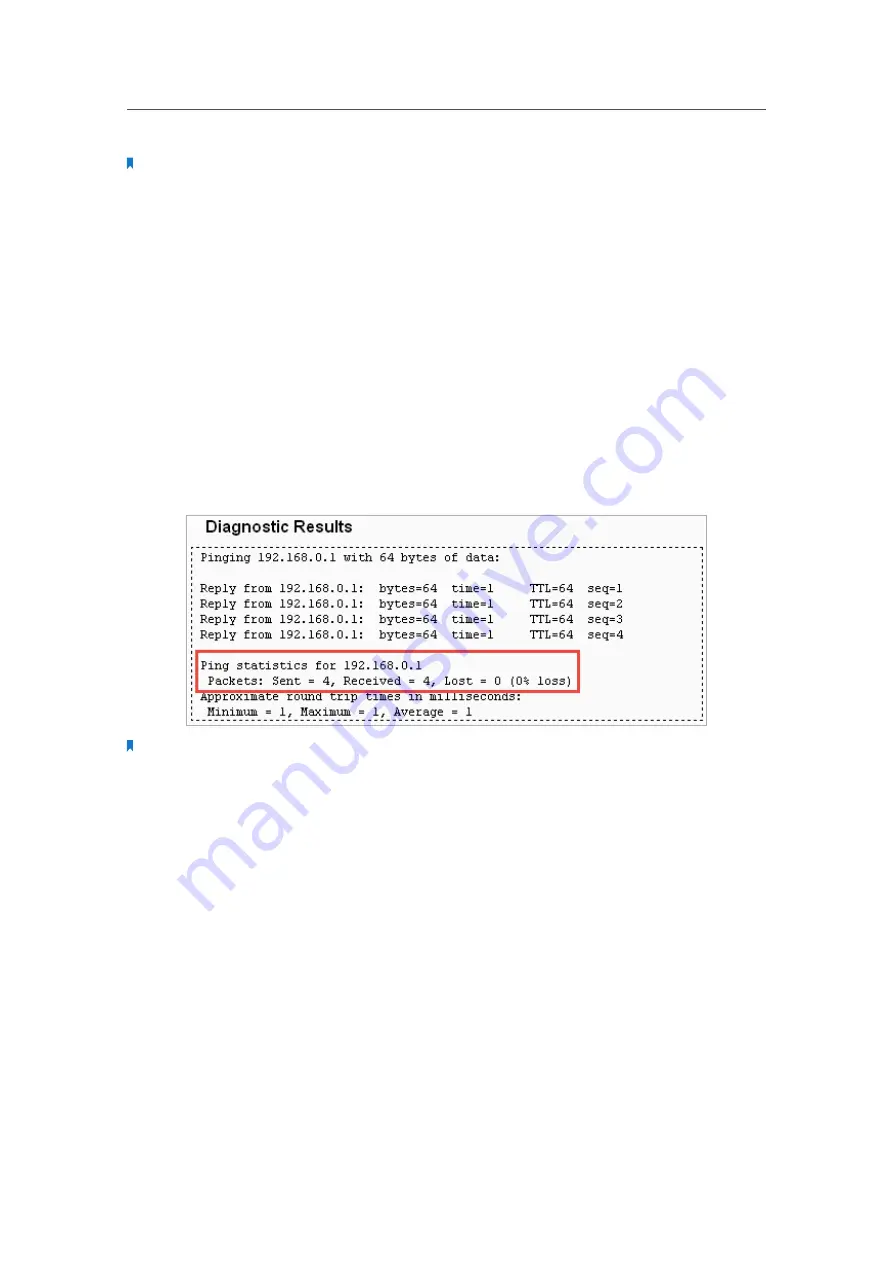
174
Chapter 6
Configure the Router in Access Point Mode
Note:
You can use ping/traceroute to test both numeric IP address or domain name. If pinging/tracerouting the IP address
is successful, but pinging/tracerouting the domain name is not, you might have a name resolution problem. In this
case, ensure that the domain name you are specifying can be resolved by using Domain Name System (DNS) queries.
•
IP Address/Domain Name
- Enter the destination IP address (such as 192.168.0.1) or
Domain name (such as www.tp-link.com).
•
Pings Count
- The number of Ping packets for a Ping connection.
•
Ping Packet Size
- The size of Ping packet.
•
Ping Timeout
- Set the waiting time for the reply of each Ping packet. If there is no
reply in the specified time, the connection is overtime.
•
Traceroute Max TTL
- The max number of hops for a Traceroute connection.
3. Click
Start
to check the connectivity of the Internet.
4. The
Diagnostic Results
page displays the diagnosis result. If the result is similar to
the following figure, the connectivity of the Internet is fine.
Note:
Only one user can use this tool at one time. Options “Number of Pings”, “Ping Size” and “Ping Timeout” are used for
the Ping function. Option “Tracert Hops” is used for the Tracert function.
6. 6. 3. Firmware Upgrade
TP-LINK is dedicated to improving and richening the product features, giving users a better
network experience. We will release the latest firmware at the TP-LINK official website
www.tp-link.com
. You can download the latest firmware file from the
Support
page and
upgrade the firmware to the latest version.
1. Download the latest firmware file for the router from our website
www.tp-link.com
.
2. Visit
http://tplinkwifi.net
, and log in with the username and password you set for
the router.
3. Go to
Setting
>
System Tools
>
Firmware Upgrade
.
4. Click
Browse
to locate the downloaded firmware file, and click
Upgrade
.
















































